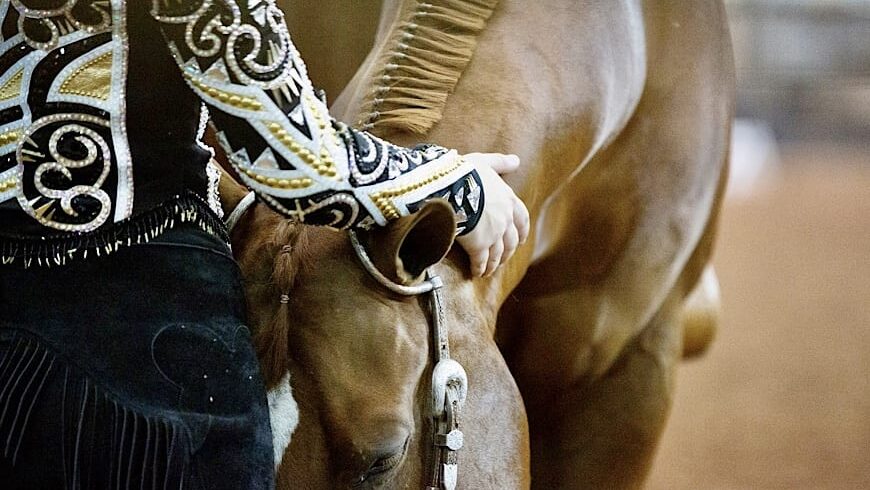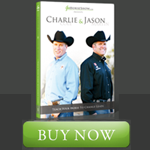The television show Mozart In The Jungle recently touched on the thought-provoking topic of why being an “amateur” is a wonderful thing:
“You say ‘amateur’ as if it was a dirty word. ‘Amateur’ comes from the Latin word ‘amare,’ which means to love. To do things for the love of it.”
The topic of what defines an amateur has become a subject of hot debate. This has been specifically at issue in the past year when major associations have considered rules allowing amateurs to make a small income off teaching others their hobby.
It seems much easier to define what makes a professional. Webster’s Dictionary defines it as “a person engaged in a specified activity, especially a sport or branch of the performing arts, as a main paid occupation rather than as a pastime.”
If Mozart In The Jungle is to be our guide for a moment, then being an amateur stems from a pure, unadulterated love of a sport or activity and not from a desire to make a living. In the horse world, most can attest that it will only make you a millionaire if you were previously a billionaire. So why do we engage in such an expensive and time-consuming hobby when it rarely pays a financial return on our substantial investments?
We spoke with champion amateurs Broc Clark and Susan Wilson to get their takes on what being an amateur means and how their love of the sport guides their ambitions.
Broc Clark’s Love for the Sport Made Him Who He is Today
Clark developed his passion for horses from a young age. His family owned a ranch in Michigan, and he began showing in local 4-H programs when he was nine. Once he “caught the bug,” he took his passion up through the ranks of AQHA, eventually winning both Congress and World Championship titles in Youth Showmanship before heading off to college.
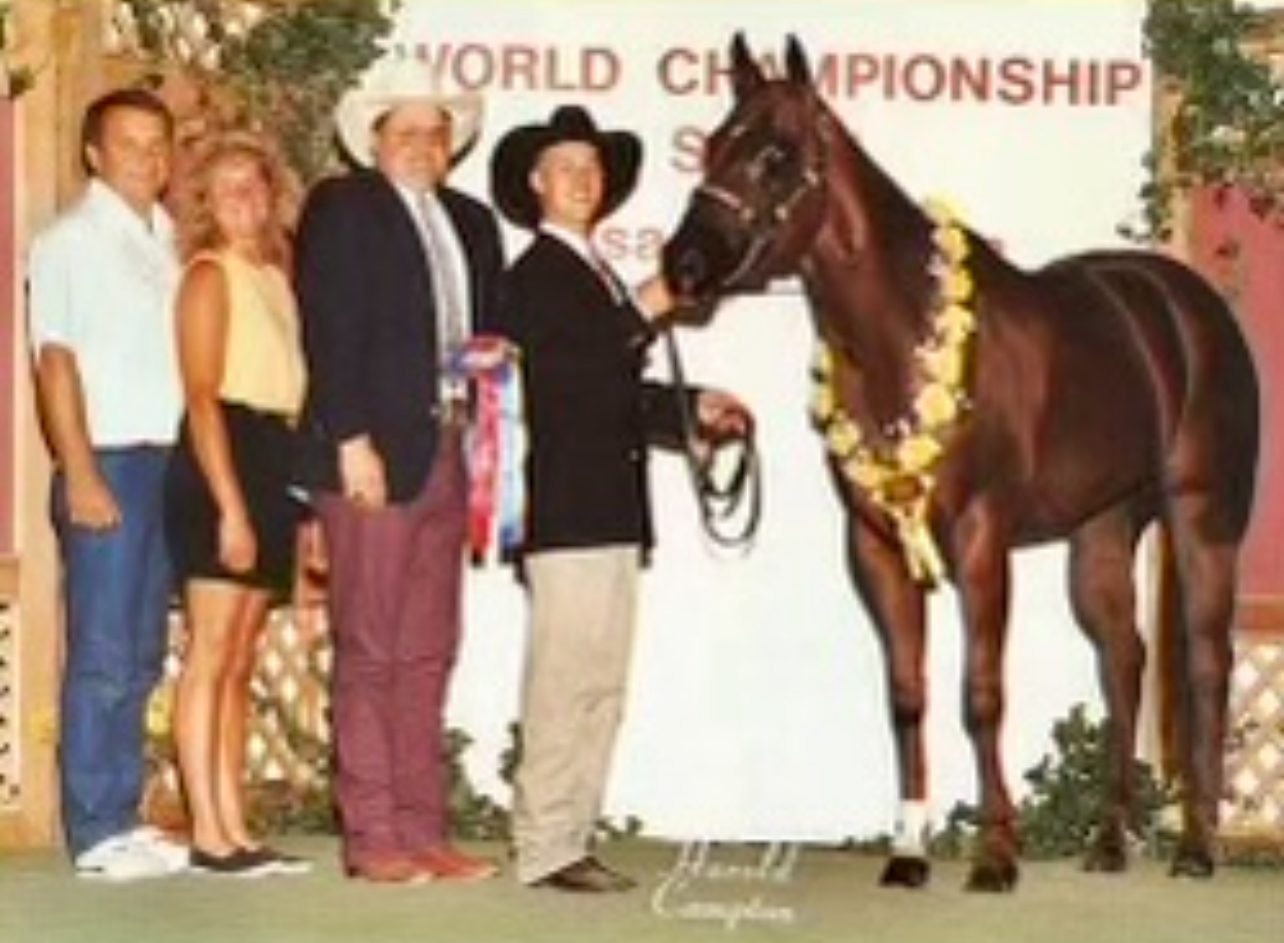
Broc laughs, “I wasn’t particularly inclined to find success in the ‘more traditional’ sports, and I found my place in showing horses.” He continues, “I loved the animals first, and then I found I loved the competition and its challenges. Once I got into the competition, I realized I’d established connections with so many people that horse showing became an important social outlet – horse people are my tribe.”
He reflects, “I honestly believe that showing horses as a youth made me who I am today. The sport set me up to have a realistic expectation of the world. As a result of competing, I learned not only to accept criticism, but to seek out criticism to improve. I also learned to work through anxiety and self-doubt to perform my best despite my fears. I learned empathy and the importance of caring for another living being other than myself – it made me so much more responsible at a young age.”
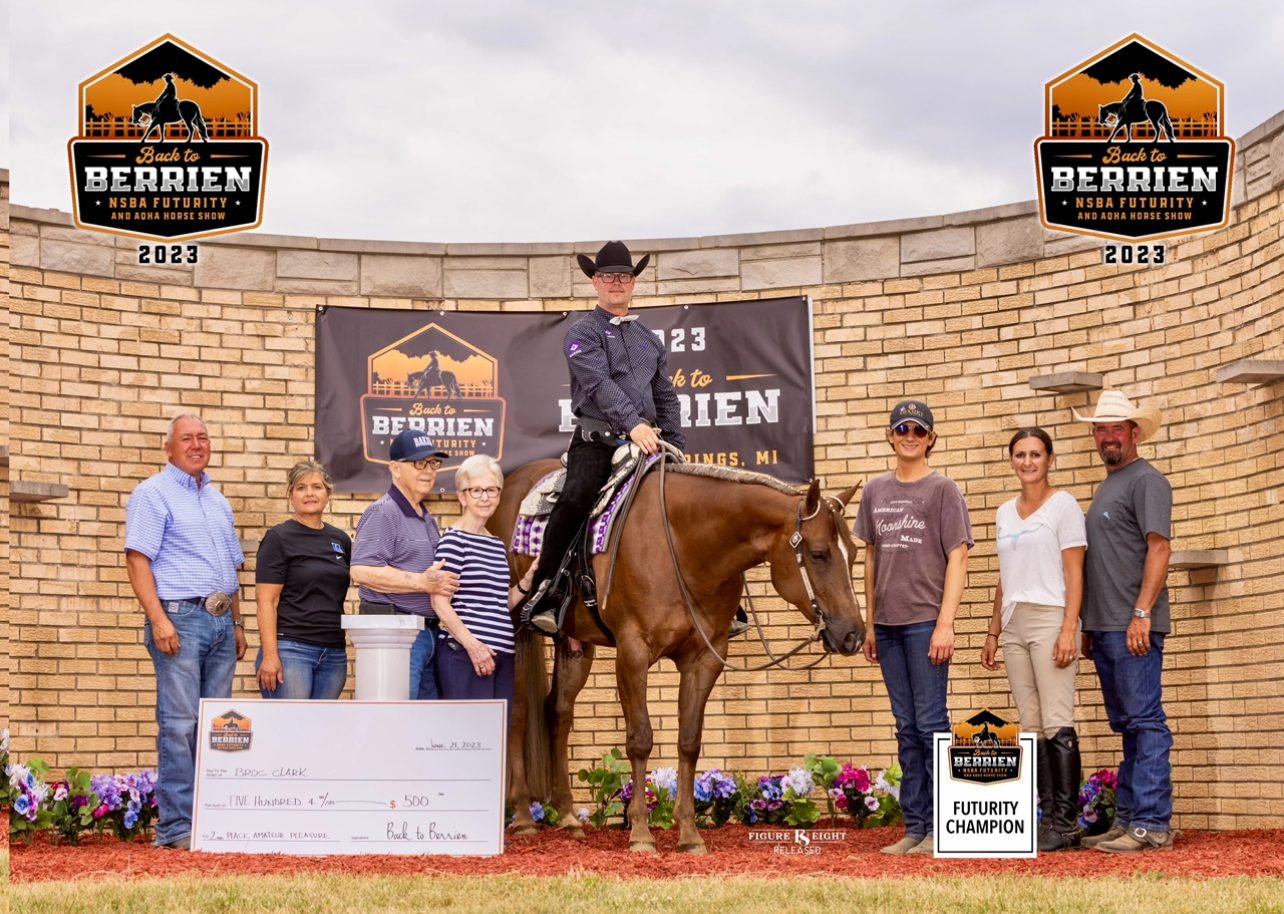
“Finally, showing horses taught me how to be a good competitor. Many people think that competition is about you versus ‘them.’ But, with horses, I was showing against my friends, who I grew to love and cheer for independent of my success or failure. I learned that when I compete, I’m competing against myself and who I was yesterday…not who is actually in the class with me.”
Clark explains, “All these wonderful experiences in showing have contributed to my success outside of the arena, and I not only love the sport itself, but I love who I am because of the sport.”
As an amateur who pays my bills, I’ve found that my love for the sport has grown, and it’s become my reprieve from my ‘real world’ job and responsibilities. I’m appreciating a new dimension of competition by showing young futurity horses still learning their jobs instead of a broke youth horse.”
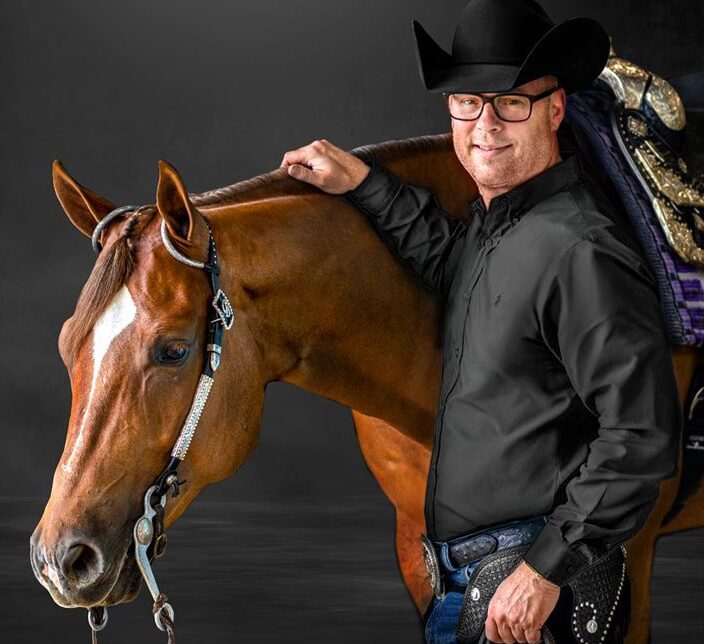 He emphasizes, “I may not win a class, but I don’t need to win to love it. I love seeing my horse, and I improve as a team. I love seeing a young horse come into their own. I love reconnecting with friends from my youth. And I love how horses have allowed me to form or to keep a connection with people who I may not interact with otherwise.”
He emphasizes, “I may not win a class, but I don’t need to win to love it. I love seeing my horse, and I improve as a team. I love seeing a young horse come into their own. I love reconnecting with friends from my youth. And I love how horses have allowed me to form or to keep a connection with people who I may not interact with otherwise.”
“Overall, I think it is a blessing to be an amateur,” he smiles. “I am in a position to take time away from the sport if I need to. I’m also in a position where it is okay to mess up, and I won’t lose my livelihood. This allows me to enjoy the sport with the same exuberance I did as a child. I feel like horses become your world once you’re a professional, so it can’t offer the same escape from the world as it does for me.”
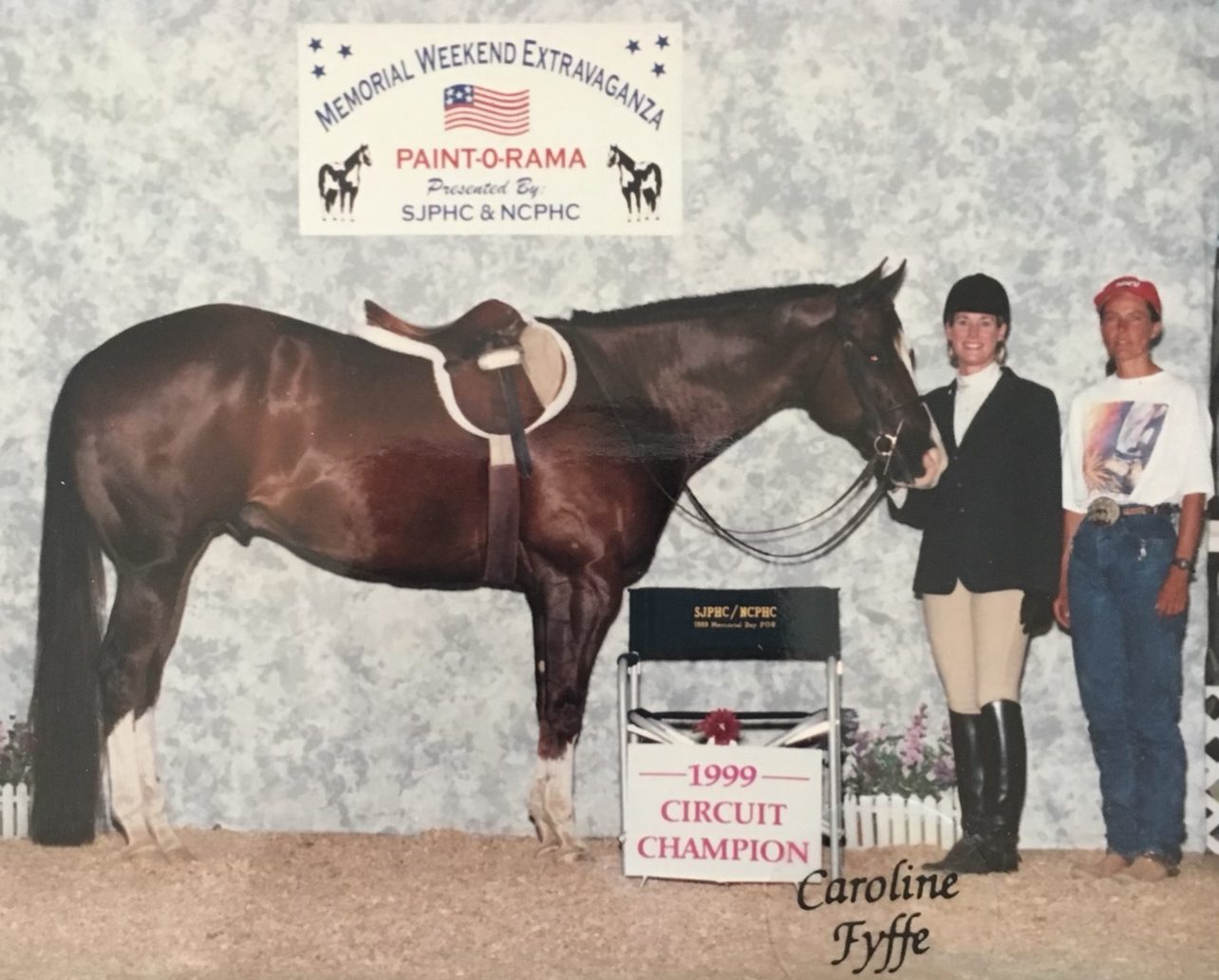 Susan Wilson’s Love for the Sport was in Her DNA
Susan Wilson’s Love for the Sport was in Her DNA
Wilson found her passion for horses at an early age, seemingly out of nowhere. “I’ve always been horse crazy,” she admits. “I feel it was in my DNA because nobody in my family had horses. I remember being a child, sitting in the back seat of the family car and begging my parents to stop whenever I saw a horse in the field so that I could look at them.”
“I was a competitive pianist at an early age, but that passion was completely eclipsed by my love for and interest in horses,” she laughs. “I think I was around ten when my parents finally caved in and got me my first horse – a gray gelding from the Humane Society that I named Cloudy.”
“I remember riding Cloudy around bareback through the hills of San Diego County, thinking there was nothing better in the whole world.”
She reflects, “I do this simply because I can’t imagine my life without horses. I love horses; I’m obsessed with them. And I also love competing. I’m no spring chicken and still get giddy about showing my horse. I can hardly wait to return to the arena – even if we didn’t do great at the prior show.”
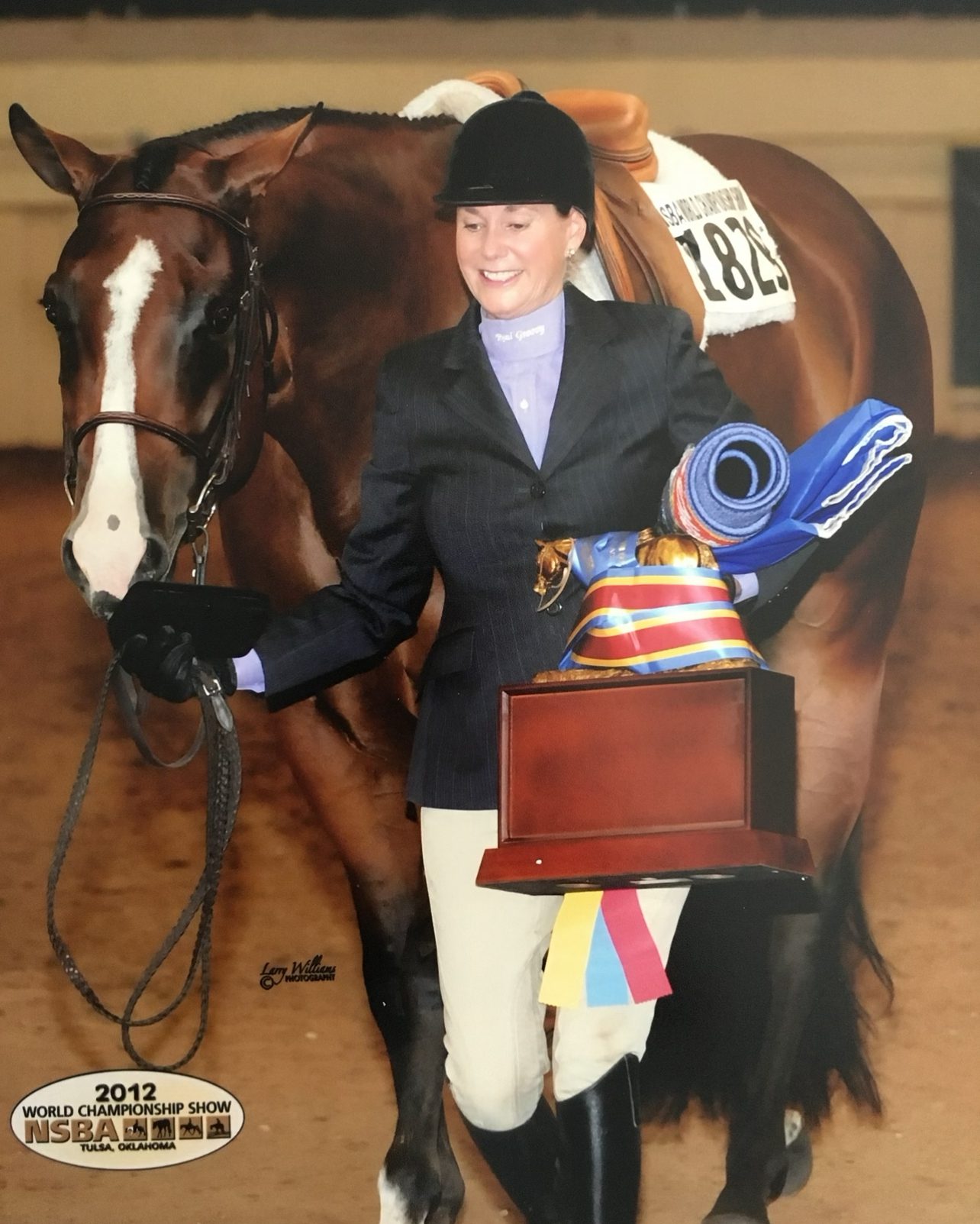 Wilson gets teary-eyed when she thinks about what fuels her passion, “It’s the connection with the horse. There is nothing quite like it for me. I’ve lost some beloved horses, and I know some people wonder how I keep going, but I love that connection I form with my horses and the feeling when we finally ‘click’ and figure each other out.”
Wilson gets teary-eyed when she thinks about what fuels her passion, “It’s the connection with the horse. There is nothing quite like it for me. I’ve lost some beloved horses, and I know some people wonder how I keep going, but I love that connection I form with my horses and the feeling when we finally ‘click’ and figure each other out.”
She continues, “I enjoy the challenge of getting a horse and building that relationship with them. Then, I love the feeling of accomplishment when we improve as a team and ultimately find some success together. It’s like an addiction!”
Wilson laughs that the connection isn’t always automatic and that even great horses can take some time to adjust. “I still cannot believe I was so fortunate to be able to purchase Hez Blazin Trouble (aka ‘Parker’) last year. I love Western Riding and was super excited to have a horse of his caliber to show with.”
“Well, even the great ones can humble you, and our first class together was a total disaster,” she giggles. “I came out laughing, even though some people thought I would be upset or mad. But that moment inspired me to work with Parker to get to know him and learn how to work together. Putting in that work was half the fun, and we had a much better go the next time together.”
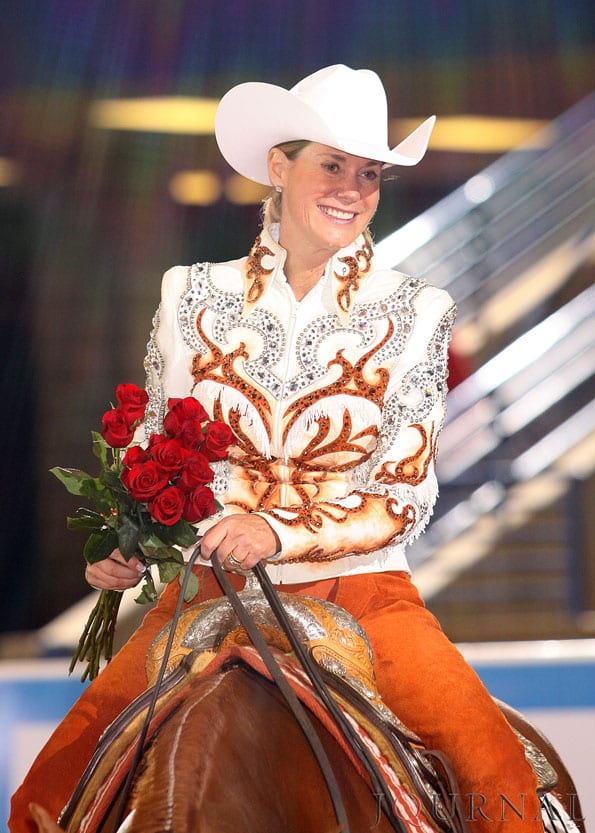
“At the end of the day, I guess it is true that amateurs do it for the love of the sport,” she admits. “I’ve had highs and lows in this sport. I’ve had triumphs and heartbreaks. I even took an over 20-year break from the sport as a young adult. But, while I was away, it felt like a piece of me was missing. When I returned, it was as if I had never left. I still loved the animals and the connections with people I hadn’t seen in years. I think this ‘horse thing’ is in your blood.”
“Simply put, nothing is better than loving a horse that loves its job, wants to work with you, and is kind. Some of my early horses were tough, but those were the ones who taught me how to get things done and become a better rider – and I loved them for it.”
Wilson admits, “I would never want to be a professional!”
“I have a lot of respect for the professionals who are out there making our dreams come true with our horses.” She laughs, “While I know I’m not talented enough to do what they do, I also know that I wouldn’t want my livelihood to depend on horses. That would put too much pressure on outcomes, and I wouldn’t enjoy the relationship with the horse the same way.”
“Being an amateur is such a blessing. And being a part of our horse community has made my life whole.”
***
Our sport needs amateurs at all levels of competition – those who are breathing new interest and excitement into our ranks and those who have the experience and knowledge to help us steer a course that is in the best interest of long-term growth. Being an amateur is a badge of honor – we amateurs are the lifeblood of the equestrian world.
Never be ashamed of joining our ranks or trying something new, especially for the love of the horse and the sport.


